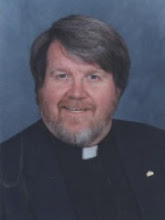For the third year, Dallas hosted an AFI film festival (
www.afidallas.com). So far this year, I have only attended a movie called "Skin." The film set in apartheid-era (and after) South Africa relates the story of Sandra Lain

g, born of two "White" parents who is "Black" in appearance, when race was all important. Her parents had her legally declared "White" but the society judged by appearance. An engaging film, "Skin" journeys fully into sadness and disappointment with glimmers of joy and hope. It is worth seeing if it gets a US distributor.
I particularly appreciated the Q&A afterword where the actress playing the mother in the story, Alice Krige (a South African, perhaps better known as the Borg Queen of Star Trek), spoke about race relations in current day South Africa. She spoke about hope for the future of the whole nation, if only partially realized in the story of Sandra Laing. The hope was present because of the deep ability of the Africans to forgive the past, to accept the possibility of reconciliation. If that is possible for a nation, maybe we individuals can share it as well.

 Sackbut! It was enough to make me snicker in Junior High School, especially when our trombone player spelled it using the variation of sagbutt. I am older now, so I went to the Sunday afternoon musical performance expecting antique music from sackbuts, lute, viols, harp, and more varieties of recorders than I had ever seen. The concert included a nice selection of popular music of the 15th and 16th century, as well as religious music by Martin Luther. We still sing many of the Luther hymns in church. The popular music seldom is heard, though the themes -- love, pretty women, dogs, and drinking -- are readily identified in country, rock, tejano, and other modern music. But do those moderns use the sackbut? And are they missing out, since Luther's hymns are sung 400 years later while the other compositions have faded?
Sackbut! It was enough to make me snicker in Junior High School, especially when our trombone player spelled it using the variation of sagbutt. I am older now, so I went to the Sunday afternoon musical performance expecting antique music from sackbuts, lute, viols, harp, and more varieties of recorders than I had ever seen. The concert included a nice selection of popular music of the 15th and 16th century, as well as religious music by Martin Luther. We still sing many of the Luther hymns in church. The popular music seldom is heard, though the themes -- love, pretty women, dogs, and drinking -- are readily identified in country, rock, tejano, and other modern music. But do those moderns use the sackbut? And are they missing out, since Luther's hymns are sung 400 years later while the other compositions have faded?







